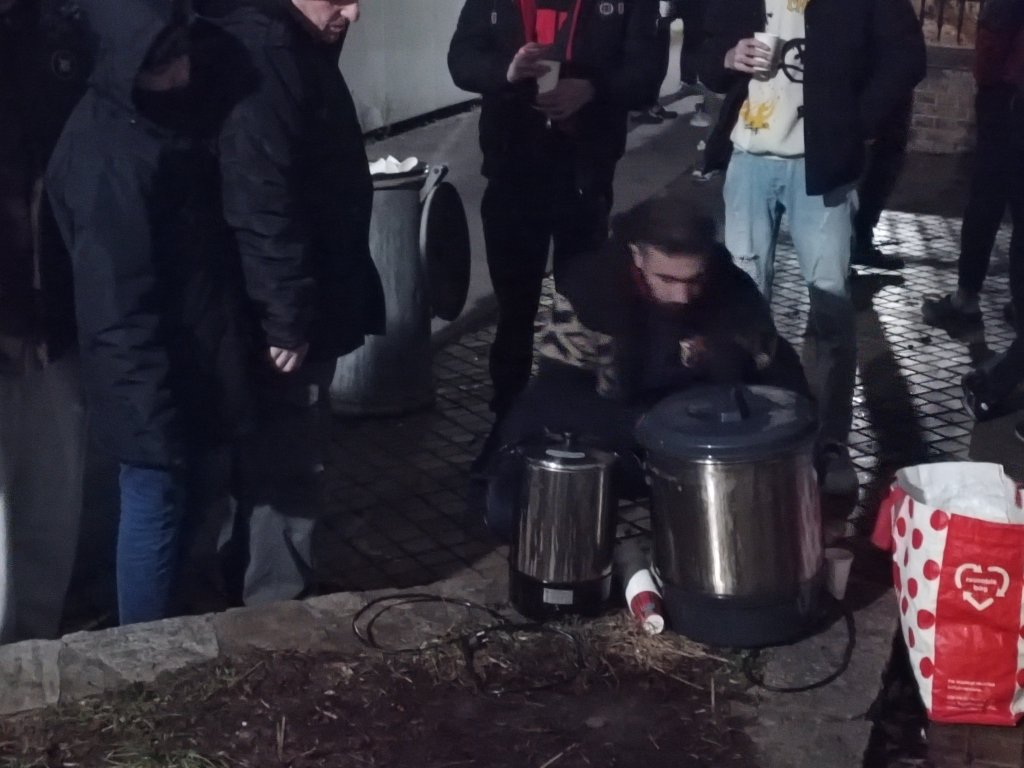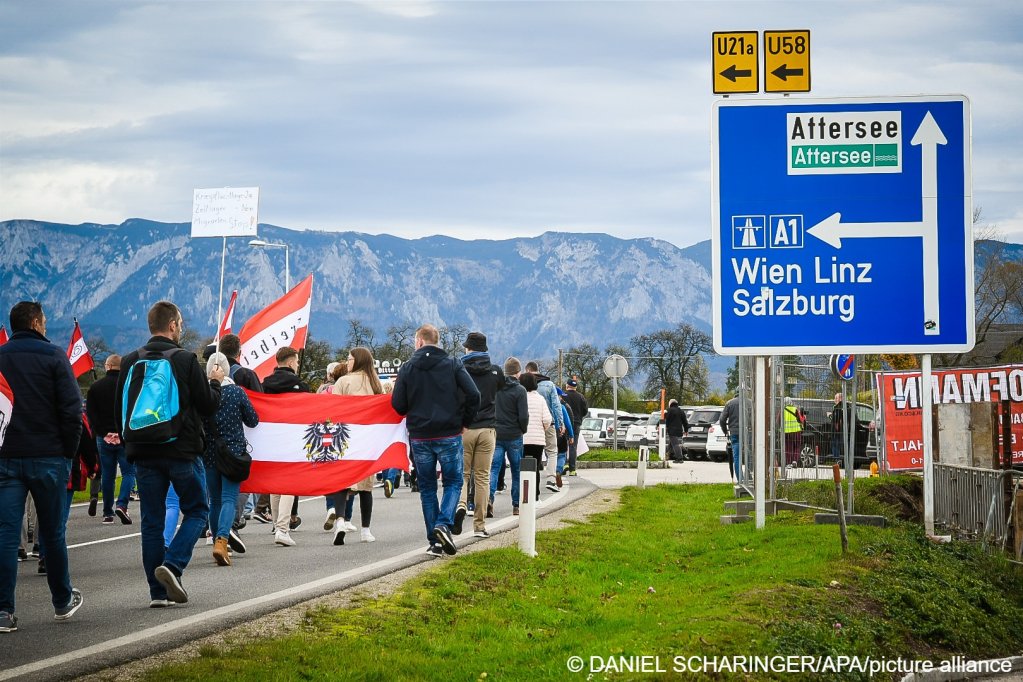Each night, volunteers pick up migrants stranded outside the gates of Austria's main asylum seeker facility and take them to a shelter where they can eat and sleep. As a national standoff over accommodation continues, the problem of homelessness looms large.
Delshad Bazari spends every evening at the same place. When he has finished work, he goes to the asylum seeker reception facility in Traiskirchen to serve hot tea to the people gathered outside.
At the biggest center for asylum seekers in the country, just south of Vienna, the doors close at 10 pm each night. This is when Bazari and his wife, and a handful of other volunteers, have another job to do: to help those who remain outside the center find a place to sleep.
Secret shelter
Some nights there have been as many as 45 people – migrants from India, Morocco and Tunisia, as well as Afghanistan and Syria – stranded outside the Traiskirchen center, at risk of having to sleep on the streets, Bazari tells InfoMigrants.
But recently, fewer newcomers have been arriving, and this Tuesday there were just two. Bazari took them to an emergency shelter that provides soup and a bed for the night – its location is kept secret to ensure that it is not targeted by far right activists.
The self-employed Syrian carpenter is motivated to volunteer his time every night, sometimes as late as 2 am, after working a full day, because just eight years ago he himself arrived in Austria as a refugee, even staying for a few days in the Traiskirchen facility. "I received help, and I want to pass that onto others," he says in German.

Asylum politicized
In recent months the shortage of accommodation for asylum seekers in Austria has become critical, partly because more people have entered the country to seek protection. In the first nine months of 2022, there were 71,885 asylum applications, up from around 40,000 over the whole of last year. Austria is also hosting more than 85,000 refugees from Ukraine.
In August there were more asylum applications than in any single month in 2015, the year of the huge influx of refugees from the Syrian civil war. At that time, many more migrants were only transiting through Austria and did not require long-term accommodation.
Read also: Austria: 5,000 asylum seekers risk homelessness
Even so, in 2015 the Traiskirchen facility, which was built for 400 people, was also bursting at the seams with about 6,000 migrants, many of them sleeping in the open, according to Traiskirchen City Councillor Norbert Ciperle. Hundreds were also left stranded outside the center because the office closed at weekends.
Seven years on, Ciperle told InfoMigrants, the conservative government is repeating the same mistakes and worse still, using the asylum seekers for political gain. According to him, there is another reason for the migrants being stranded outside the Traiskirchen center every night: he says police in Wels, 200 kilometers west of Vienna, have been directing asylum seekers to Traiskirchen in the knowledge that it has no capacity to take them.
"When they come to Traiskirchen in the late evening or in the night, they find closed doors and cannot enter. So they need a place to stay and we pick them up as well," says Ciperle.

Continuing standoff
As the chaos drags on, the city’s mayor, Andreas Babler, has called for the "camp" to be shut down and asylum seekers to be housed in vacant state-owned properties or private accommodation.
As for the federal interior ministry's solution of housing migrants in tents, no one seems to have supported that. For anti-immigrant groups, tents are a potent symbol of the country’s being "overwhelmed by floods of foreigners," says Ciperle, while to the pro-migrant left they are inhumane, especially in the winter.
"Tents are not the answer," agrees Bazari. "Could you sleep in a tent in these temperatures?, no."
Only 4,000 more places for asylum seekers need to be found, say migrant supporters, if only the interior ministry and the state governments could resolve their differences. But the standoff has continued, with the federal government insisting that most regions have not fulfilled their required quotas of taking in asylum seekers, and the states and municipalities arguing that they are already doing enough.
Ciperle says there is a "silent" majority in Austria that supports asylum seekers. But their opponents are becoming more and more vocal. Last month, the mayor of St. Georgen, taking a stand against the interior ministry, claimed that some residents in his village felt threatened by the presence of asylum seekers, many of whom are young men.
In Traiskirchen itself, right-wing extremists, dressed in paramilitary uniforms, showed their opposition to migrants in the city by lighting flares and throwing anti-immigration leaflets at the center. According to the Austrian daily Kurier, some of the leaflets read: "The future for Europe is NOT to become AFRICA. We advise you to go home. Austria does not need or want you."
Bazari is not deterred. "I'll go there (to the asylum seeker facility) and do this every night, also with my wife and my cousin," he says.
"Why and who (is responsible) doesn’t interest me. I am just there to help people."
